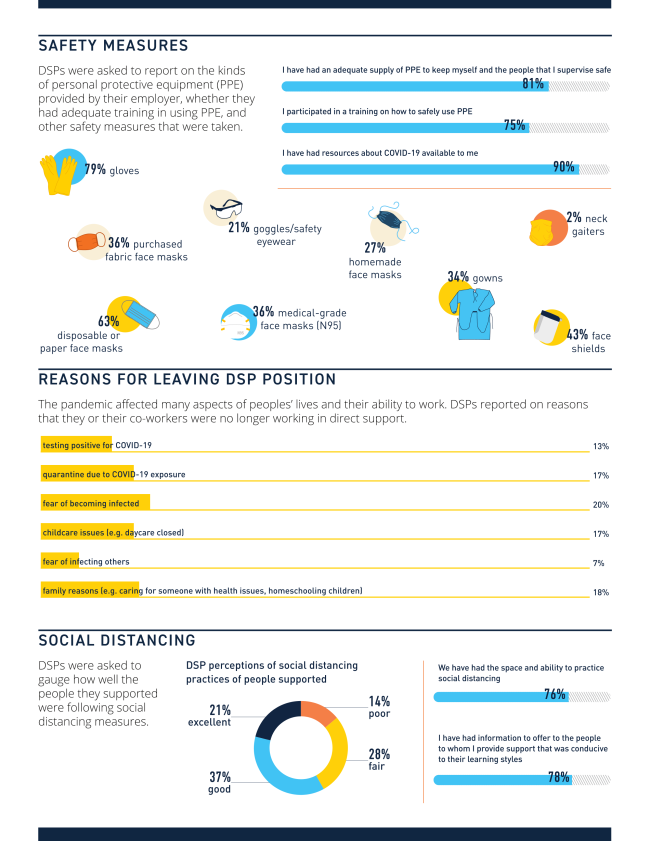The Institute on Community Integration’s Research and Training Center on Community Living for Persons with intellectual and Developmental Disabilities at the University of Minnesota, in partnership with the National Alliance for Direct Support Professionals, conducted a survey of approximately 9,000 direct support professionals (DSPs) from across the country about their experiences supporting people with intellectual and developmental disabilities (IDD) during the COVID-19 pandemic. DSPs are interdisciplinary professionals who provide complex and essential supports to individuals with IDD, making community inclusion a reality.
This is a six-month follow-up report to the initial report completed in April 2020 and is the largest study conducted on the direct support workforce.
Key findings include:
• Nearly half (47%) said they had been exposed to COVID-19 at work and their exposure was higher in congregate facilities than in individual or family homes.
• 97% of workers self-identified as essential workers, but only 30% received salary augmentations.
• Black/African American DSPs were paid less per hour than white DSPs, and a higher percentage of Black/African American DSPs worked 40 or more additional hours per week.



